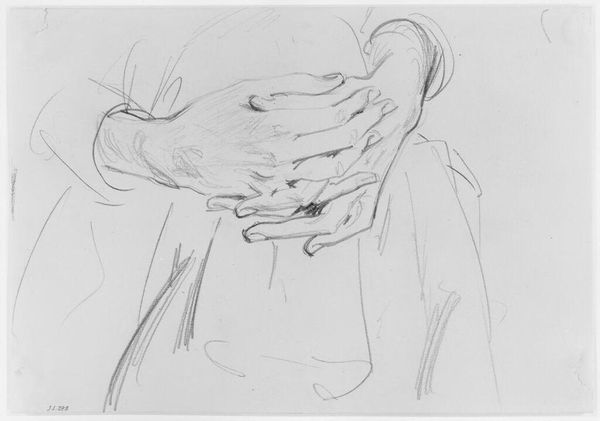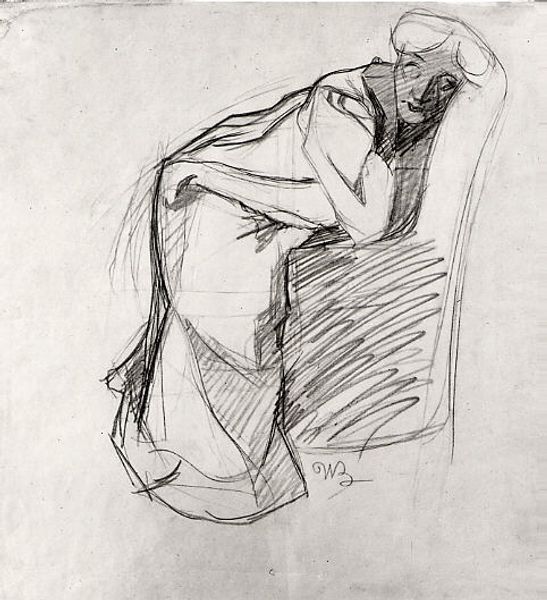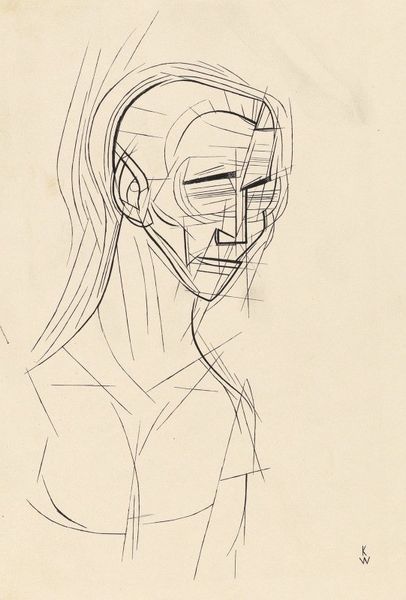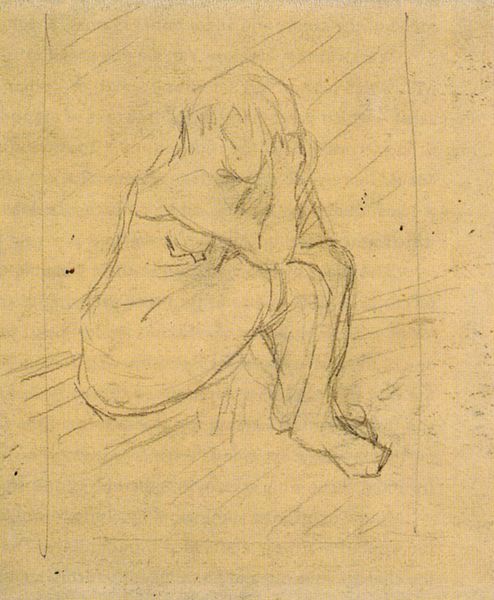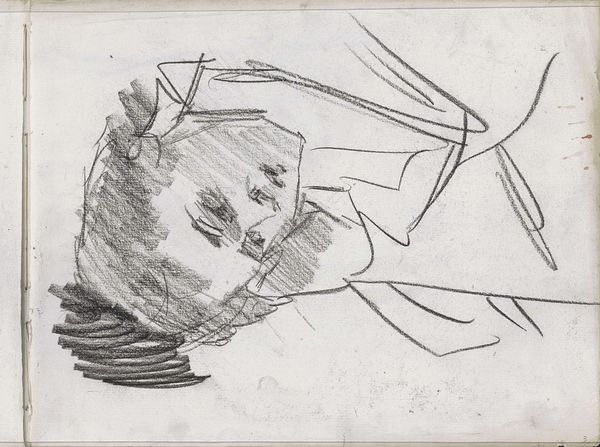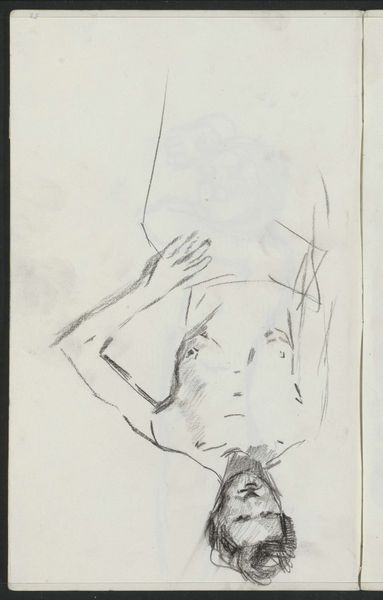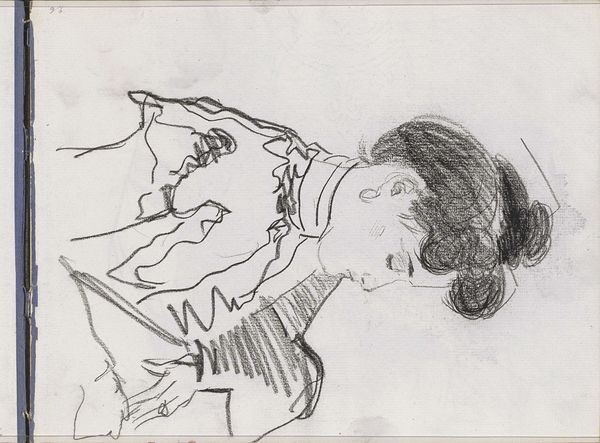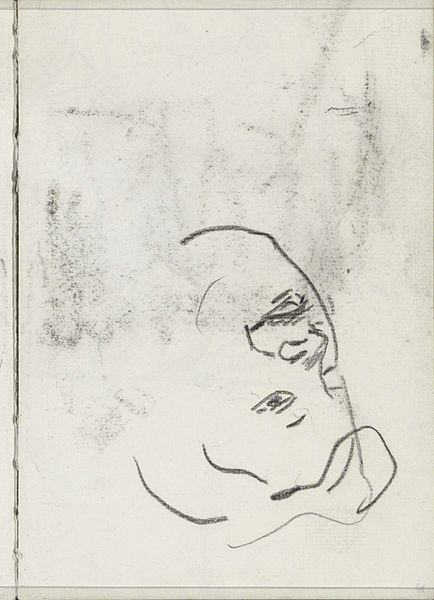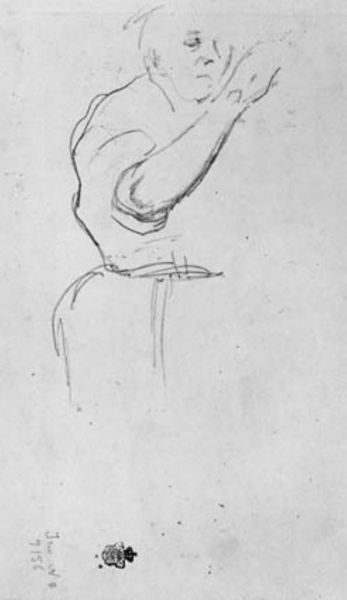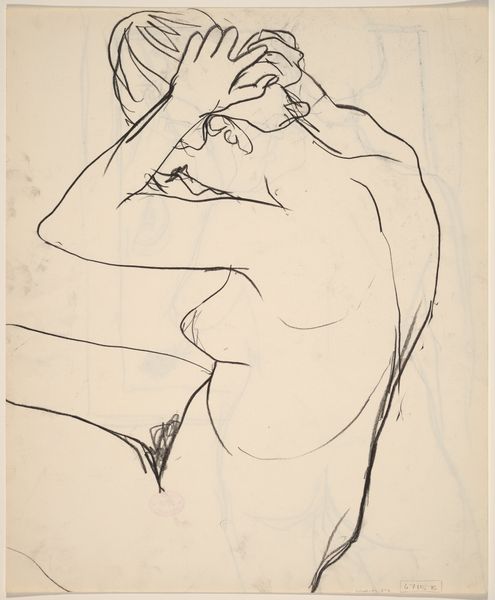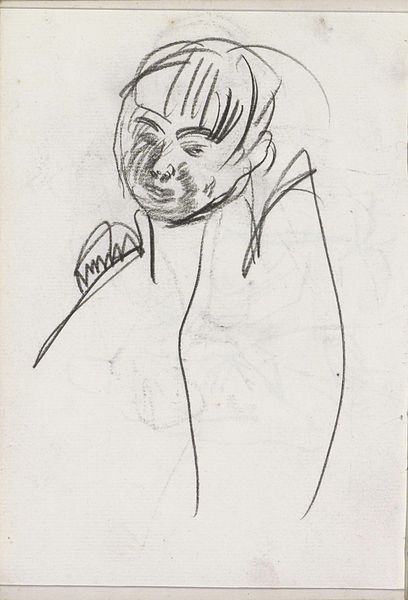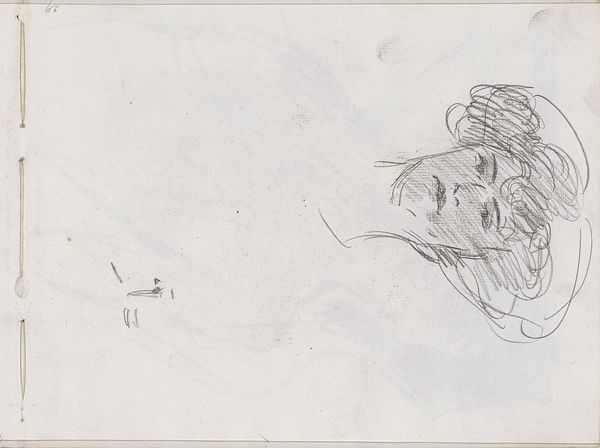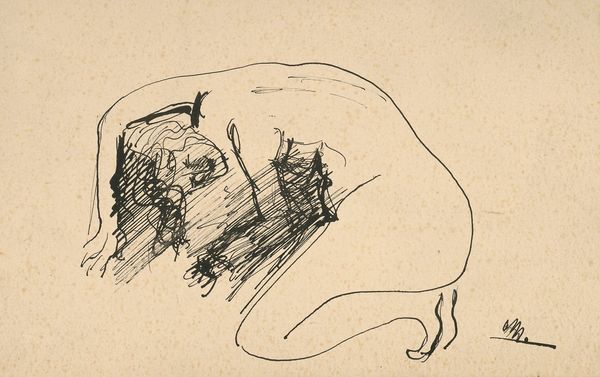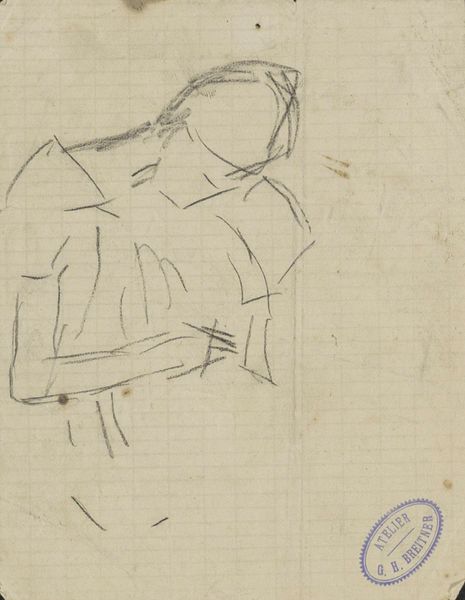
drawing, ink, graphite
#
portrait
#
drawing
#
facial expression drawing
#
figuration
#
portrait reference
#
ink
#
idea generation sketch
#
line
#
graphite
#
portrait drawing
#
portrait art
Copyright: Public domain
Vajda Lajos made this line drawing, Két Arc, which translates to Two Faces, at some point in his short life before his death in 1941. The overlapping faces suggest a double consciousness, which chimes with a period of Hungarian history marked by the rise of political extremism and wartime trauma. Born in Hungary at a time of great upheaval, Vajda spent time in Paris absorbing the ideas of Surrealism and Cubism, artistic movements which questioned perception and experience. Back in Hungary, these ideas would have resonated with the increasing sense of cultural unease. It is perhaps no coincidence that he turned to representing two faces rather than one. Could this superimposition of faces reflect the fractured sense of identity felt in central Europe in the early 20th century? To understand an artwork like this, historians often look at the wider context, including the political and social events that may have influenced the artist's state of mind.
Comments
No comments
Be the first to comment and join the conversation on the ultimate creative platform.
